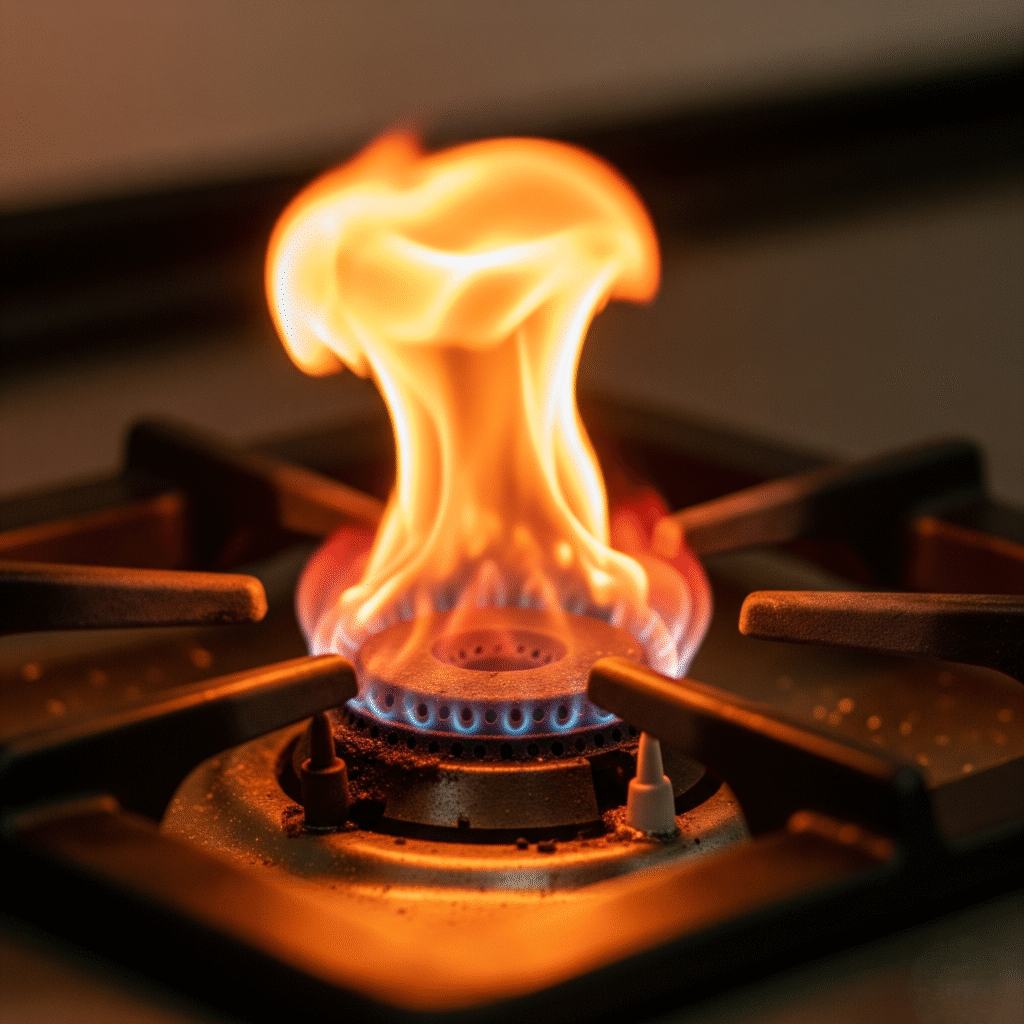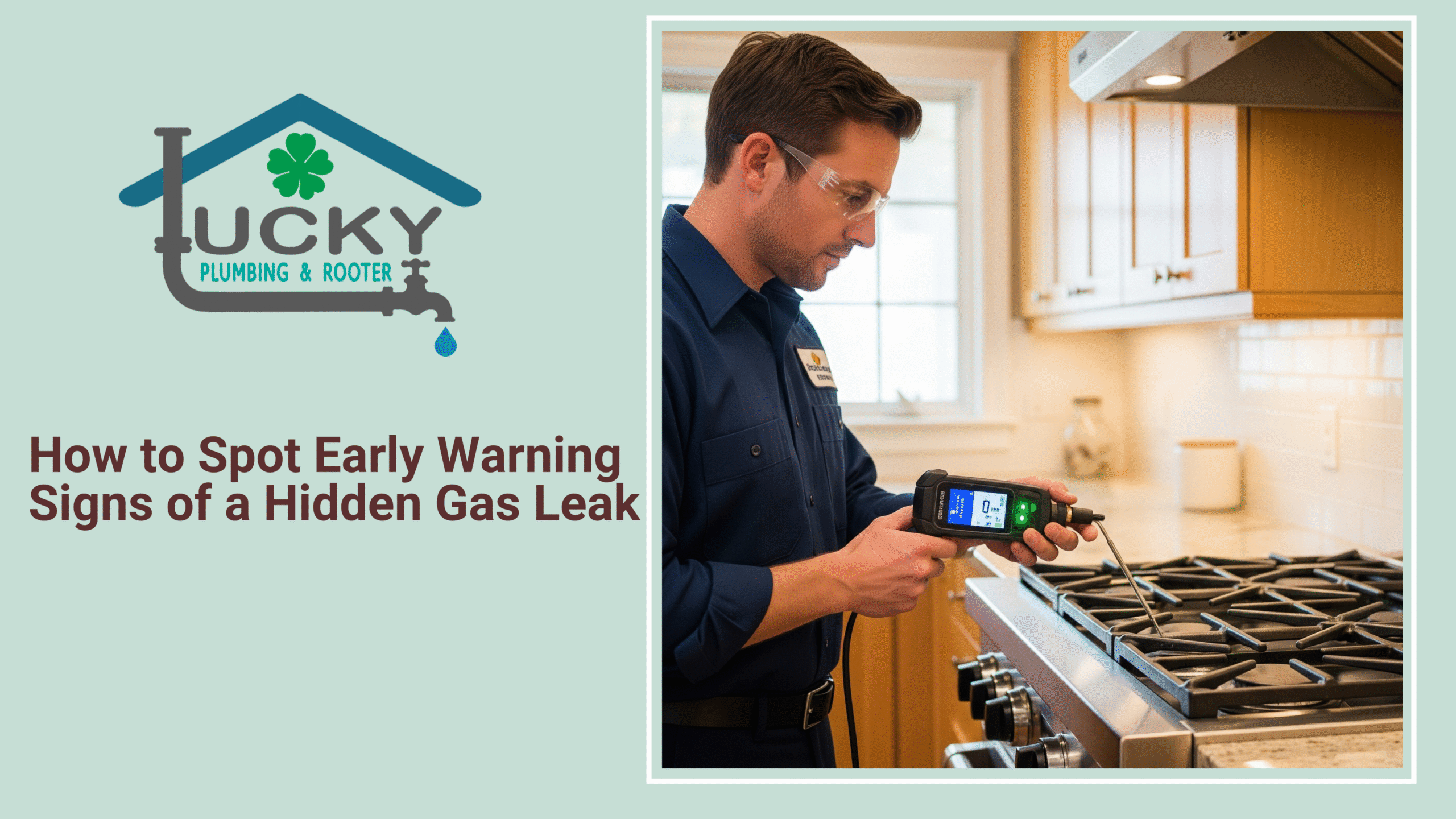Introduction
Gas leaks are among the most dangerous household hazards because they often go unnoticed until it’s too late. A hidden gas leak can cause health issues, fire, or even an explosion. Recognizing the early warning signs can help you act quickly, protect your loved ones, and prevent property damage.
In this guide, we’ll walk you through the most common symptoms and subtle clues to help you detect a gas leak before it turns dangerous.
Why Gas Leaks Are So Dangerous
Natural gas and propane are colorless and often odorless in their natural state. Utility companies add a chemical called mercaptan, which smells like rotten eggs or sulfur, to help homeowners detect leaks.
Even a small gas leak can:
- Lead to dizziness, headaches, or nausea
- Pose a risk of fire or explosion
- Harm pets and plants in your home
Common Early Warning Signs of a Hidden Gas Leak
1. Unusual Smells
The most noticeable sign is a sulfur-like or rotten egg odor around appliances, pipes, or basements.
If the smell is faint, it might still indicate a slow leak that can worsen over time.

2. Hissing or Whistling Sounds
Gas escaping under pressure can create a:
- Hissing sound near connections or pipes
- Whistling sound from damaged valves
These noises are especially noticeable when your appliances are turned off.
3. Dying Houseplants
Gas leaks reduce oxygen in the air, which can:
- Cause indoor plants to wilt suddenly
- Turn leaves yellow or brown
- Kill even low-maintenance plants
If multiple plants decline at once, it’s worth investigating.
4. Unexplained Physical Symptoms
Mild gas exposure can lead to:
- Headaches
- Fatigue
- Dizziness
- Nausea
- Shortness of breath
If symptoms improve when you leave the house, suspect a gas leak.
5. Higher-than-Usual Gas Bills
A sudden spike in your gas bill without increased usage could mean:
- Gas is escaping through a leak
- Appliances are working inefficiently due to a leak
Compare current and past bills to spot unusual trends.
6. Bubbles or Dust Near Gas Lines
If you see:
- Bubbles forming in standing water near gas pipes
- Dust or dirt blowing without wind
- A misty or foggy appearance near connections
These are red flags that gas might be leaking underground or behind walls.
7. Pilot Lights and Burner Problems
Signs include:
- Pilot light keeps going out
- Burners produce an orange or yellow flame instead of a steady blue one
This could indicate incomplete combustion and a possible leak.

Gas Leak Health Risks
Even small leaks can be deadly:
- Causes carbon monoxide buildup (a silent killer)
- Trigger chronic respiratory issues
- Lead to long-term headaches or memory problems
Children, elderly people, and pets are especially vulnerable.
What to Do if You Suspect a Gas Leak
Leave immediately: Step outside and get fresh air.
Avoid sparks: Don’t flip switches, use your phone, or light matches indoors.
Turn off the gas supply: If safe to do so, close the main gas valve.
Call professionals: Contact your gas company or a licensed plumber outside your home.
Don’t go back in: Wait until a professional declares it safe.
Preventing Hidden Gas Leaks
- Schedule annual inspections for appliances and pipes
- Install natural gas and carbon monoxide detectors
- Replace old flexible gas lines with modern, corrosion-resistant materials
- Keep flammable items away from gas appliances
- Learn where your gas shut-off valve is located
Regular maintenance is often the simplest way to prevent dangerous leaks.
When to Call a Professional
Don’t try to fix suspected gas leaks yourself. Call a certified:
- Plumber or HVAC technician
- Utility company emergency line
They use specialized equipment to find and repair even the smallest leaks safely.
Conclusion
Hidden gas leaks can turn deadly if ignored, but early warning signs like unusual smells, hissing sounds, or health symptoms can save lives. By staying alert, investing in regular inspections, and calling experts when needed, you can keep your family and home safe.
If you’re ever in doubt, always choose safety first: step outside and give us a call. We value your safety above all else, and we make sure the problem doesn’t come back again.




